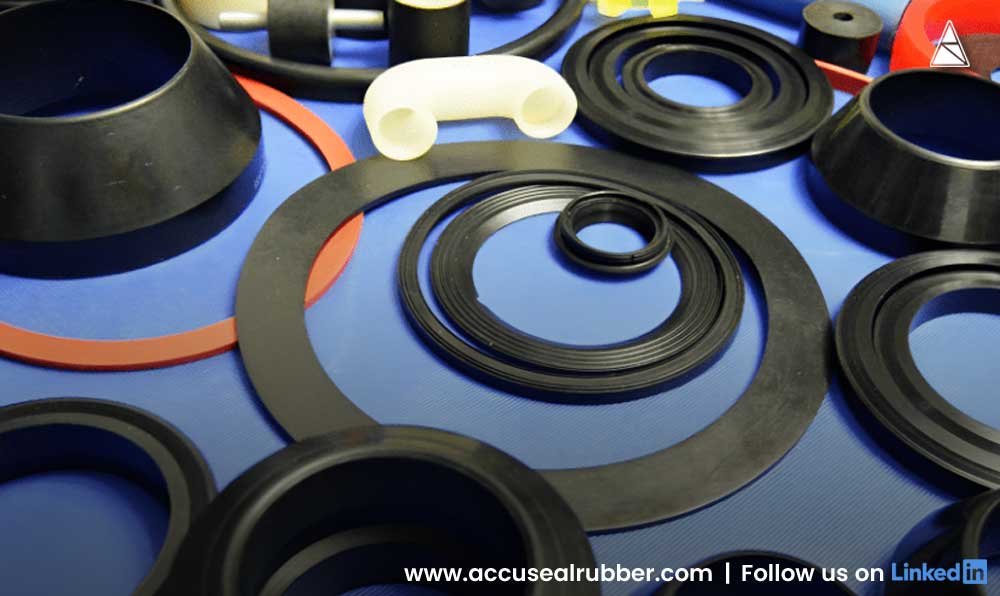When it comes to industrial applications, choosing the right rubber material can mean the difference between efficiency and failure. With a wide range of rubber types available, each offering unique properties, it’s essential to understand which one best suits your needs.
1. What are the key factors to consider when choosing industrial rubber?
Selecting the best rubber for industrial applications depends on:
Temperature resistance – Can the rubber withstand extreme heat or cold?
Chemical compatibility – Will the rubber resist exposure to oils, chemicals, or solvents?
Mechanical properties – Does it offer high tensile strength, abrasion resistance, and flexibility?
Environmental exposure – Will the material be exposed to UV radiation, ozone, or moisture?
Cost-effectiveness – Is it economical for large-scale industrial use?
2. What is the most commonly used industrial rubber?
Several types of rubber are widely used, but the most popular include:
Natural Rubber (NR) – High elasticity and tensile strength, ideal for shock absorption.
Nitrile Rubber (NBR) – Excellent oil and fuel resistance, commonly used in gaskets and seals.
EPDM (Ethylene Propylene Diene Monomer) – Superior weather and ozone resistance, used in outdoor applications.
Silicone Rubber – Exceptional heat resistance, suitable for high-temperature environments.
Neoprene Rubber – Good chemical stability and resistance to moderate heat and ozone.
Viton (FKM) – High chemical and temperature resistance, often used in aerospace and automotive industries.
3. Which type of rubber is best for high-temperature applications?
Silicone Rubber withstands temperatures up to 300°C, making it perfect for extreme heat conditions.
Viton (FKM) is also a top choice for high-temperature industrial applications, particularly in chemical and oil processing industries.
4. What is the best rubber for oil and chemical resistance?
Nitrile Rubber (NBR) is excellent for applications requiring resistance to petroleum-based oils and fuels.
Viton (FKM) provides outstanding resistance to harsh chemicals, acids, and solvents.
5. What type of rubber is most durable for heavy-duty industrial use?
Natural Rubber (NR) is highly durable and abrasion-resistant, commonly used in conveyor belts and industrial machinery.
Neoprene Rubber offers durability and moderate resistance to heat and chemicals, making it ideal for marine and automotive industries.
6. Which rubber is best for outdoor applications?
EPDM Rubber is the best choice for outdoor applications due to its excellent UV, ozone, and weather resistance.
Neoprene Rubber also provides good resistance to outdoor elements but is slightly less effective than EPDM.
7. Is there an environmentally friendly rubber option?
Yes, natural rubber is biodegradable and sourced from renewable resources, making it an eco-friendly choice. Additionally, some synthetic rubbers are now being developed with recyclable and sustainable materials.
8. How does rubber hardness (durometer) impact industrial applications?
The hardness of rubber, measured in durometers (Shore A scale), affects flexibility and durability:
Soft rubber (30-50 Shore A) – Offers flexibility and cushioning, used in vibration dampening applications.
Medium hardness (50-70 Shore A) – Provides balanced durability and flexibility, suitable for gaskets and seals.
Hard rubber (70-90 Shore A) – Ensures high wear resistance, ideal for industrial rollers and protective linings.
9. What is the best rubber for sealing applications?
Nitrile Rubber (NBR) is widely used for fuel and oil-resistant seals.
Silicone Rubber is preferred for high-temperature sealing applications.
Viton (FKM) is the best option for chemical-resistant seals.
10. What type of rubber is best for electrical insulation?
Silicone Rubber is an excellent electrical insulator and can withstand high temperatures.
EPDM Rubber also provides good insulation properties and is commonly used in cable insulation.
11. How does industrial rubber perform in extreme cold?
Silicone Rubber retains flexibility even in temperatures as low as -60°C.
EPDM Rubber remains elastic and functional in freezing temperatures.
12. Can industrial rubber be customized for specific applications?
Yes, industrial rubber can be formulated with specific additives and compounds to enhance performance characteristics such as flame resistance, conductivity, or increased durability.
13. Which industries commonly use industrial rubber?
Industrial rubber is used across various sectors, including:
Automotive (seals, gaskets, tires)
Aerospace (fuel system components, insulation)
Oil & Gas (hoses, seals, gaskets)
Construction (roofing materials, weatherproofing seals)
Manufacturing (conveyor belts, machine components)
14. What maintenance is required for industrial rubber components?
To extend the lifespan of rubber products, follow these maintenance tips:
Regular cleaning to remove dirt, oil, and chemicals.
Avoid excessive stretching to prevent cracks and deformation.
Store properly in a cool, dry environment away from direct sunlight.
Inspect for wear and tear and replace damaged parts as needed.
15. Where can I buy high-quality industrial rubber?
For top-quality industrial rubber solutions, Accuseal Rubber Inc. provides a wide range of rubber products tailored to various industries. Their expertise in manufacturing durable and high-performance rubber materials ensures reliability and efficiency in industrial applications.
By choosing the right type of rubber, industries can significantly enhance the performance and durability of their machinery and equipment. Whether you need rubber for extreme temperatures, chemical resistance, or outdoor durability, selecting the right material is crucial for long-term efficiency.
For premium industrial rubber solutions, Accuseal Rubber Inc. is your trusted partner in delivering quality and durability.

 Nick Parker
Nick Parker